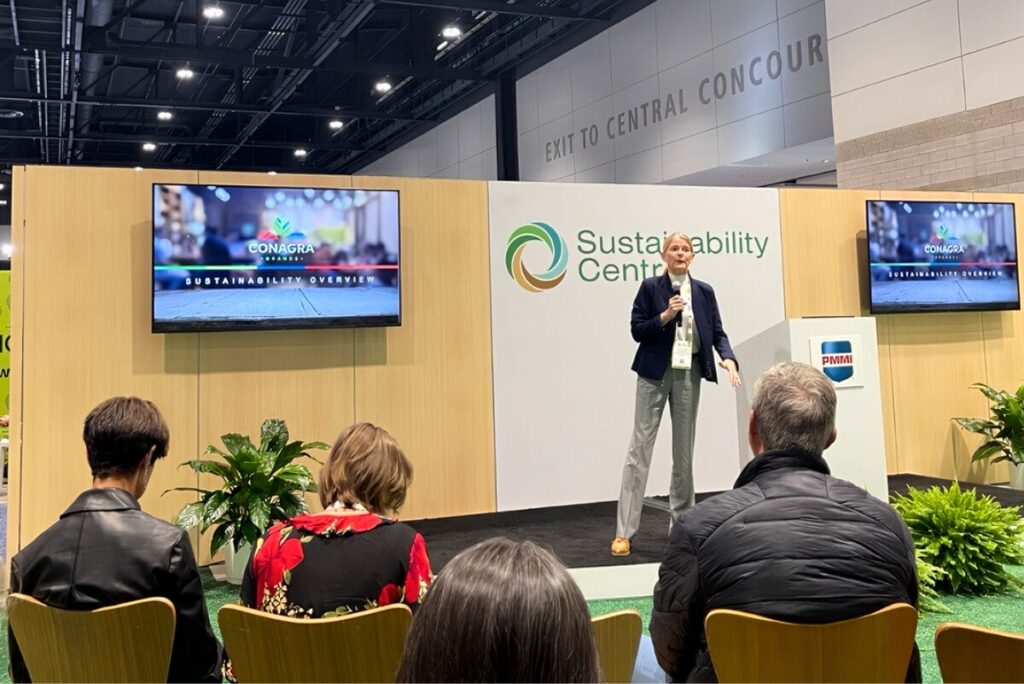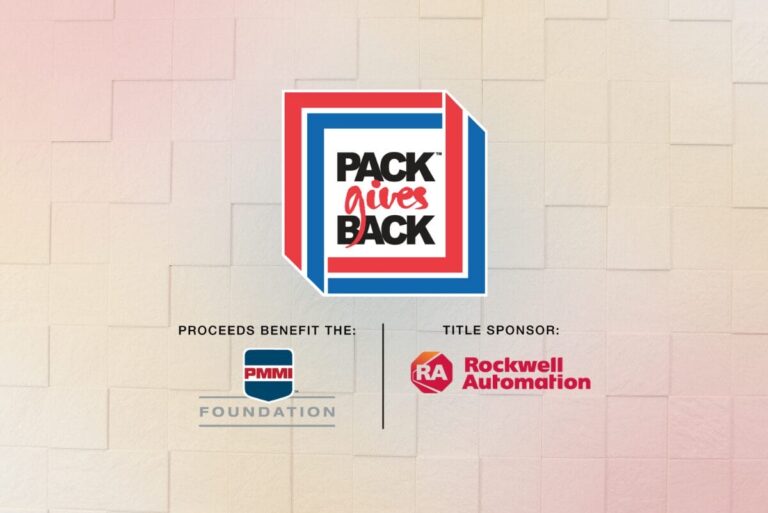CHICAGO — Sustainability discussions were at the forefront of Pack Expo International, held Nov. 3-6 in Chicago and hosted by PMMI, the association for packaging and processing technologies.
During a session held at the show’s Sustainability Central titled, “Sustainable Food Manufacturing: Balancing Profit, Planet, and Policy,” Christine Daugherty, VP/chief sustainability officer at Conagra Brands, outlined the four key areas that food manufacturers can hone in on to become more sustainable.
“It’s absolutely critical in our manufacturing that we are addressing our energy, water consumption and packaging,” Daugherty said. “Sustainability efforts can really help advance our industry’s economic, social and environmental performance.”
Collaboration between organizations is a vital factor when it comes to furthering the industry’s sustainability impact as a whole.
“Conagra partners with a number of other entities in many areas and there are other manufacturing facilities that are in the geographic region, and maybe we’re all pulling from the same water reservoir,” Daugherty said. “We have to work in concert with each other, otherwise both of us will fail.”
One of the main challenges that many organizations face is the regulatory requirements and standards placed on sustainability efforts. While necessary to ensure progress and accountability, regulations can be daunting to those who are just starting their sustainability journey.











